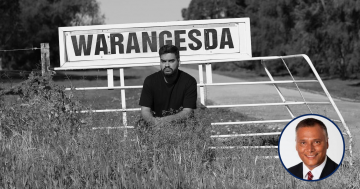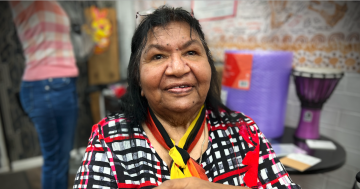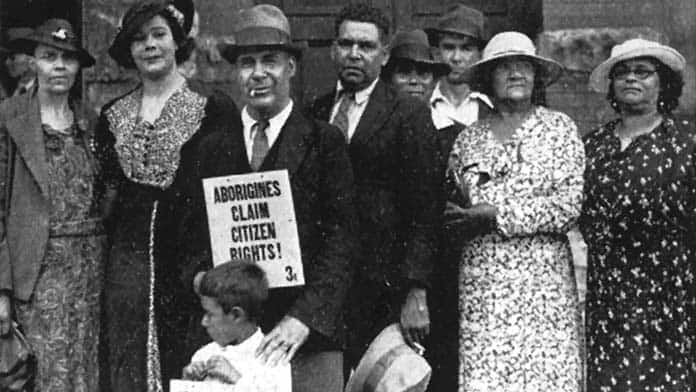
Bill Ferguson (holding sign) at the 1938 Day of Mourning. Photo: AIATSIS Collection.
“To all you people of Aboriginal blood, I say I am fighting for your freedom!” declared Wiradjuri man and civil rights leader Bill Ferguson in his final speech in December 1949.
As he left the stage, he collapsed and days later, on January 4, 1950, passed away in the Dubbo Base Hospital.
“My father died of a broken heart,” his daughter Isobel Ferguson would say years later.
But Bill Ferguson died as he had lived – on his feet, fighting for justice, equality and a voice for his people.
Bill was born in 1882 at Darlington Point in the Riverina to a Scottish boundary rider and shearer, William Ferguson Snr, and Wiradjuri woman, Emily Ford.
In the late 19th Century, Warangesda Mission near Darlington Point had become one of the few safe places in NSW for Aboriginal people and it was there that a young Bill Ferguson went to school.
At 14, Bill joined his father, working in shearing sheds across the Riverina during a turbulent political time.
Bill’s father taught him to stand up for himself with his words and his fists and a sharp-witted Irishman and early Labor Party leader, Patrick McGarry, taught him to speak out against exploitation as an Australian Workers’ Union representative.
As Bill travelled the bush, he witnessed the appalling treatment of the First Nations people and by the 1930s he had resolved to be a voice for his people.
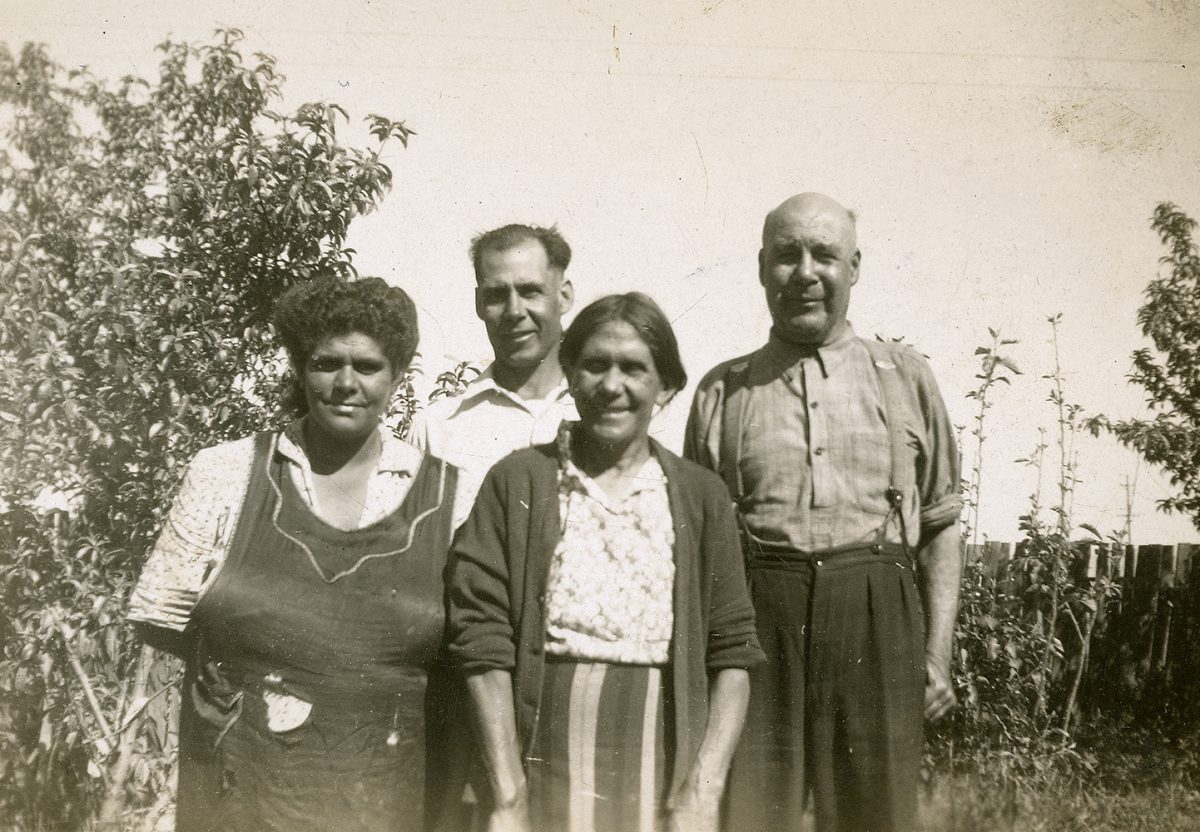
Blanche, Duncan, Margaret and William Ferguson in Dubbo. Photo: AIATSIS Collection.
With his wife Margaret and 10 children in tow, Bill moved north, becoming a leader in Dubbo’s Presbyterian Church community, an active unionist and a methodical activist.
He carefully documented the shortcomings of missions administered by the infamous Aboriginal Protection Board, gathering evidence of poor schooling, rampant tuberculosis, rations withheld, low wages and sexual and physical abuse.
On June 27, 1937, Bill Ferguson called a public meeting in Dubbo’s Masonic Hall to form the Aborigines’ Progressive Association, demanding the removal of the Protection Board and full citizenship rights for Aboriginal people.
“We have been ‘protected’ for 150 years, and look what has become of us,” declared Ferguson.
With the support of MLA Mark Davidson, a Select Committee of Inquiry was established and Ferguson’s team presented their findings to the government.
As shamed members of parliament began to boycott the hearing, Ferguson packed the benches with women’s organisations, activists, church leaders and journalists to witness their absence.
“We must educate the minds of the white people, otherwise the thrusting back of my people, which began 150 years ago, will continue – until they are swept off the face of the earth,” he said.
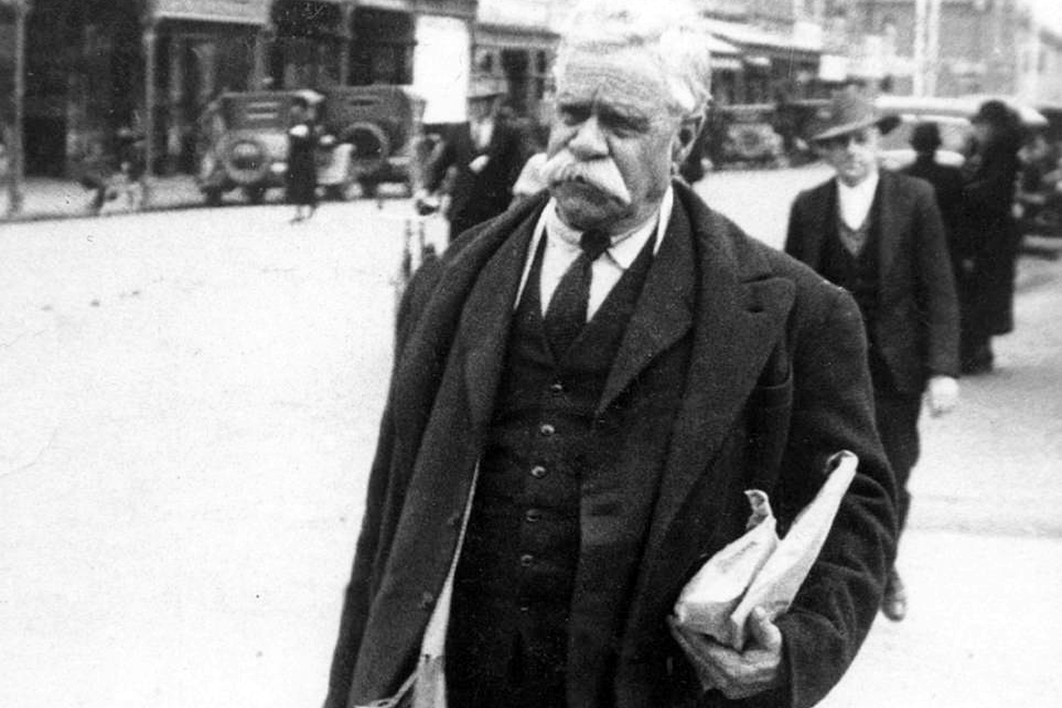
William Cooper in Melbourne in the 1930s. Photo: Esmay Mann Collection.
In 1938, on the eve of Australia’s sesquicentenary celebrations, veteran Victorian Indigenous leader, William Cooper decided it was time to take more drastic action.
Australia Day was to be a gala celebration of 150 years of European settlement but Cooper declared it a Day of Mourning.
Sixteen years before the Civil Rights Movement began marching in the US, Aboriginal leaders gathered in Sydney to stage the first public civil rights demonstration in Australia’s history.
Bill Ferguson, William Cooper, Jack Patten, Reverend Doug Nicholls and Pearl Gibbs were among those who demanded new laws for the education and care of their people and for recognition as citizens in their own land.
“We ask you to study the problem from the Aborigine’s point of view … we ask only for justice, decency and fair play,” he argued.
“Surely your hearts and minds are not so calloused that you will refuse to consider your policy of degrading and humiliating and exterminating old Australia’s Aborigines.
“Keep your charity. We only want justice!”
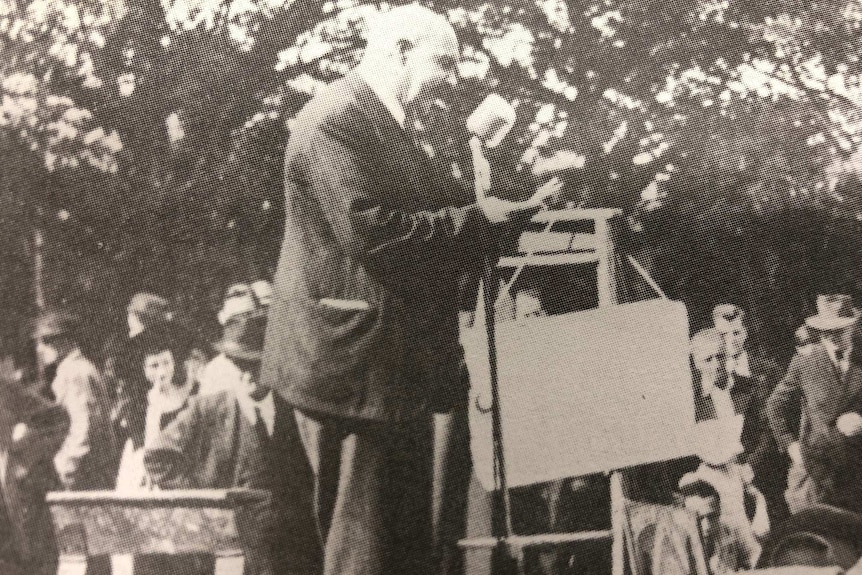
Bill Ferguson collapsed after his final speech, and died on 4 January, 1950, in Dubbo. Photo: AIATSIS Collection.
Two years later, Cooper and Ferguson were instrumental in launching ‘Aborigines’ Sunday’ in churches in 1940, an event that has evolved over the years to become the nationally recognised NAIDOC Week.
“We have suffered enough, God knows, but surely the day of our deliverance is drawing nigh. I hope I live to see it,” wrote Cooper before his death in 1941.
While neither he nor Ferguson did survive to see their dreams fulfilled, almost three decades after the Day of Mourning, the recognition of Aboriginal people took a step forward with a resounding ‘Yes’ vote in the 1967 Referendum.
With a second referendum looming on the recognition of First Nations Australians in 2023, Ferguson’s call for us to “educate” ourselves and to “study the problem from the Aborigine’s point of view” echo across the years.
Whether you vote ‘Yes’ or ‘No’ on the Voice to Parliament, Ferguson would want us to consider “justice, decency and fair play,” above all else.
The Warangesda Festival runs from Friday, 17 December at 10:00 am until Saturday, 18 December at 10:00 pm. Find out more or grab tickets on their website.



